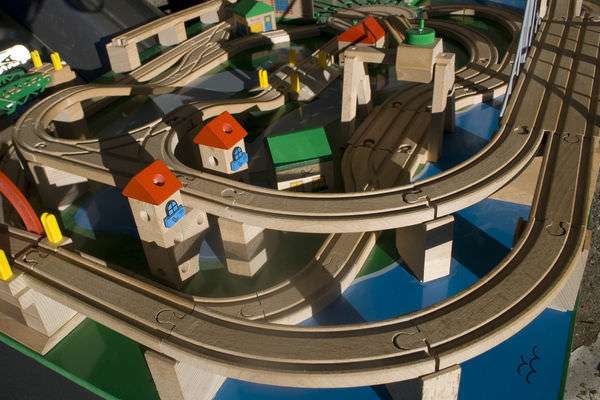The Infrastructure Crisis That Isn't

Listen to President Obama, and you'd think the United States has a serious infrastructure funding problem. In his State of the Union address this year, for example, Obama proposed a jobs program that would put people to work building and rebuilding national infrastructure in need of "urgent" repair, like "the nearly 70,000 structurally deficient bridges across the country."
But as Bloomberg's Evan Soltas argues today, the idea that the U.S. is in desperate need of higher spending is something of a myth:
Believe it or not, infrastructure has improved significantly over the last two decades. In its report for 2010, the Federal Highway Administration said that 57 percent of all vehicle-miles were traveled on federal highways with ratings of "good" or higher -- according to a measure of road quality pleasingly known as the International Roughness Index. That was up from 48 percent in 2000. The percentage of roads in bad condition has also declined: In 1989 6.6 percent of rural and urban interstates were rated "poor"; now only 1.9 percent of rural interstates and 5.4 percent of urban ones earn that grade.
Despite warnings from President Barack Obama, America's bridges have never been safer. The highway administration rated 21.9 percent of its bridges "deficient" in 2009, as compared to 37.8 percent in 1989. And contrary to Obama's implication, the word "deficient" does not mean unsafe, at least as the highway administration uses it. A bridge is "deficient" when it would benefit from expansion and renovation in line with usage.
Soltas also notes that U.S. infrastructure spending as a percentage of the economy has held fairly steady over the years, and that America's infrastructure budget puts it basically in line with global peers like Germany, Canada, and Australia.
Much of the concern over the sturdiness of U.S. infrastructure is driven by the regularly released American Society of Civil Engineers report card, which invariably gives the nation's infrastructure a poor grade. But what most reports fail to note is that the ASCE isn't exactly a disinterested party; on the question of whether or not we should spend more money on civil engineering, it is not entirely shocking to discover that a group of civil engineers thinks we ought to spend a whole lot more.
The other point to make here is that a clear-eyed look at the nation's infrastructure spending undermines the case for spending lots more money building roads and such as a way to create jobs. It would be one thing if those projects were desperately necessary, but in many cases they're not.


Show Comments (52)